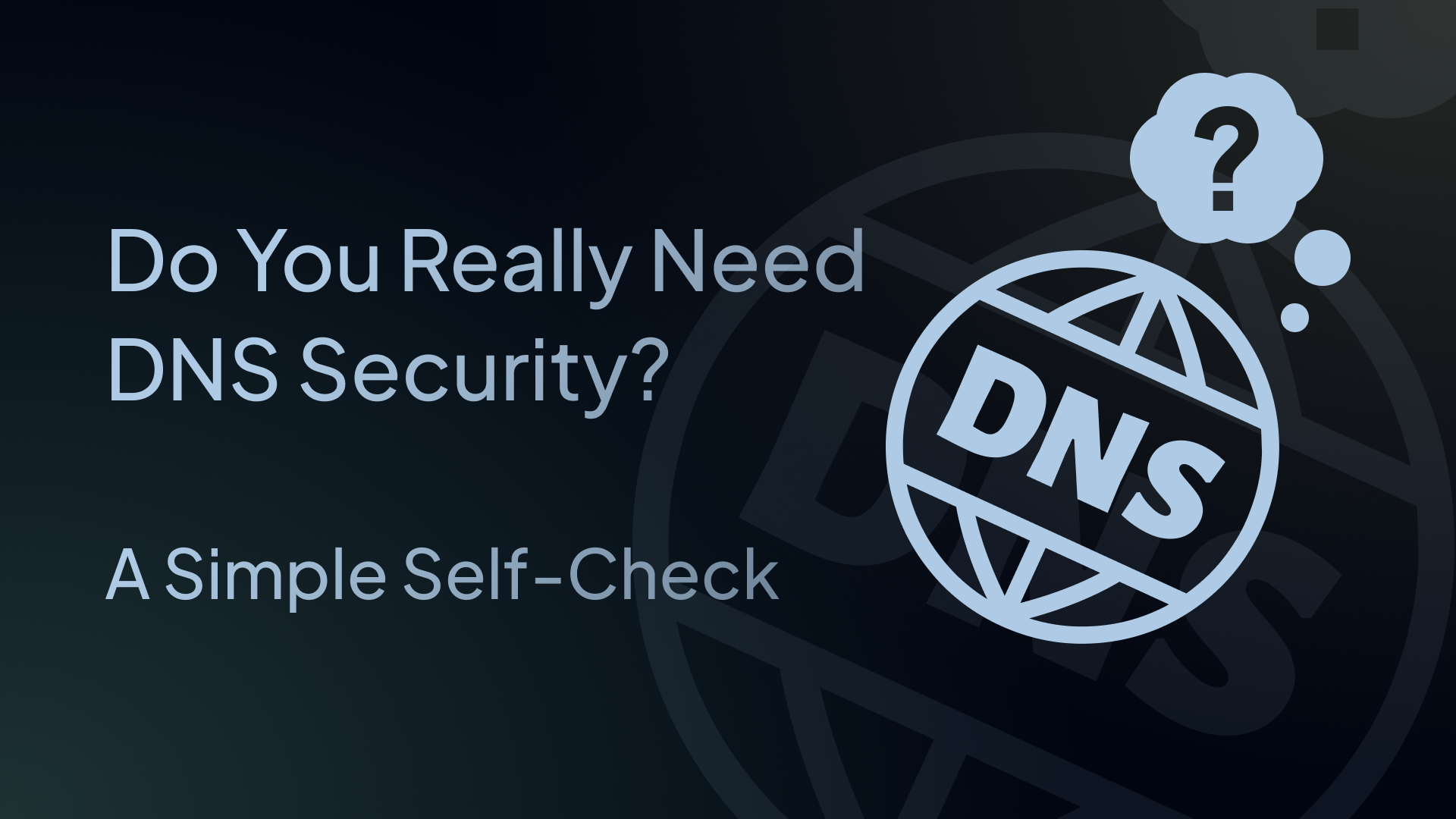Do You Really Need DNS Security? A Simple Self-Check
Here’s a simple self-check of five must-ask questions to consider when weighing whether DNS security is something you need to take seriously.

Most people don’t think twice about the Domain Name System (DNS). It’s just there, working in the background to connect you to websites, apps, and online services.
But while DNS makes the internet seamless, it also creates a hidden attack surface that hackers love to exploit.
If you’re not sure whether DNS security should be on your radar, here’s a simple self-check of five must-ask questions to consider when weighing whether DNS security is something you need to take seriously.
1. Do You Rely on the Internet for Daily Operations?
If your business or household depends on the internet to function, you’re relying on DNS hundreds (if not thousands) of times a day.
Every time you open an app, send an email, or connect to the cloud, DNS is quietly at work. When DNS isn’t secure, attackers can install malware, redirect traffic, or steal sensitive data.
If any of those sound like they would disrupt your work or life, then DNS security should already be on your checklist.
2. Do You Trust Your ISP’s Default DNS?
By default, your internet traffic is directed through your Internet Service Provider's (ISP) DNS resolver. While convenient, your ISP's DNS often comes with drawbacks.
- Subpar filtering of malicious sites.
- Limited defenses against attacks that can redirect you to fake sites (like DNS hijacking or cache poisoning).
- Potential privacy risks if they are eavesdropping on your browsing data.
If you’ve never actively chosen a DNS provider, you may be using one that emphasizes cost and speed over security and privacy. That can leave both individuals and organizations exposed.
3. Have You Experienced “Mysterious” Outages?
DNS issues are often the cause when a favorite website won’t load or an app suddenly drops connection. DNS misconfiguration, overloaded networks, or attacks against DNS infrastructure can all make online services unreachable.
DNS may already be impacting you more than you realize if you’ve dealt with unexplained downtime.
What seems like a minor outage can sometimes signal a bigger DNS issue, and in business settings, that can mean interruptions, costly data breaches, or even open the door to attacks.
4. Do You Handle Sensitive Data?
Whether it’s customer information, financial records, or even just personal login credentials, data has value. That means attackers want it, and attacks like DNS tunneling can quietly leak data without detection.
If your work involves storing or transmitting sensitive information, then DNS security should be a core part of your defense strategy.
5. Do You Want More Control Over Your Online Experience?
Beyond just security, DNS also shapes productivity and browsing quality. Businesses may want to block distracting sites on company devices/networks, while parents may want to filter harmful content at home.
Secure DNS services let you tailor rules to match your needs and offer both protection and customization.
If you’ve ever wished for more control over what loads (and what doesn’t) on your network, DNS security can make that possible.
DNS Security is a Better Way Forward
If you answered “yes” to any of the questions above, then DNS security matters for you. The good news is that it doesn’t have to be complicated.
The best DNS security tools make it easy for individuals, families, and businesses to take charge of their DNS traffic.
With it, you can:
- Block phishing sites, malware, and malicious ads before they cause damage.
- Use detailed analytics and insights to make smarter choices that keep your network and devices safe.
- Customize filters for employees, students, or even devices on your home network.
Instead of relying on default DNS services that may leave gaps, secure providers like Control D give you more control and visibility over a crucial piece of your online experience.

